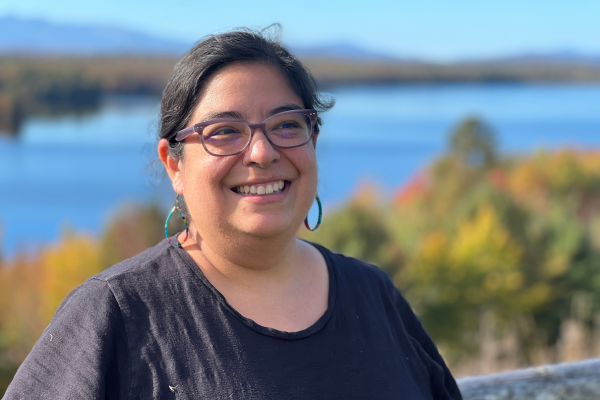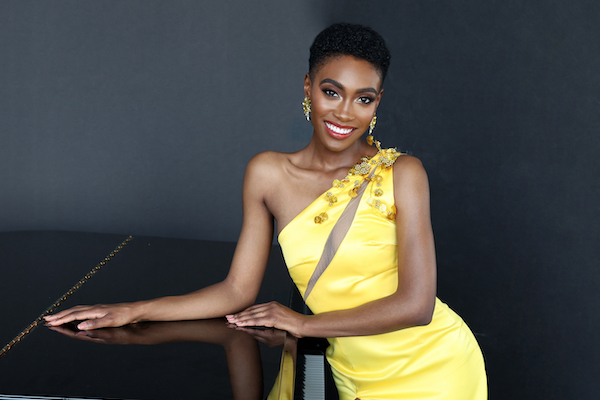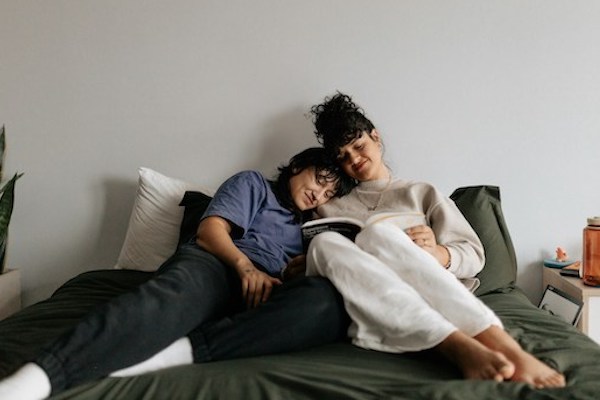
Transgender Massage Therapists Share Tips On How to Find LGBTQ+ Friendly Services
November 15, 2023
The Crucial Role of Intimacy in Building and Sustaining Relationships
November 20, 2023Queer history can tell different stories of a time and space we originally thought we knew. The Lesbian Herstory Archives (LHA) in Brooklyn, New York City, is a place where a community of volunteers seek to untangle the mysteries of the past to lay the path to a queer future.
Among those leaders is Colette Denali Montoya, a queer, Indigenous archivist for the audio collection at LHA. A member of the Isleta Pueblo and descendant of the San Felipe Pueblo, Montoya came to the archives in 2011 as a volunteer intern. “The work is serendipitous in many ways. That moment when folks come into our space and connect to it through their own identities…it’s really profound.”
Montoya’s interest in libraries stems from her first experience with a research library while living in the former Soviet Union. “I found the way [Ukrainian] libraries were organized to be very strange and difficult as a young person,” she remembers. “As I was struggling to adapt to a Russian-speaking environment, I missed those spaces where I could access information in a way that was manageable for me.”
Having studied anthropology and religious studies during her undergraduate career, Montoya’s curiosity always led her to new ways of thinking, questioning, and interacting with the world. This passion for challenging her worldview led her to the world of libraries and archives.
“I always knew that I was queer, but I didn’t have the precise language for it,” Montoya says. As an archivist, she has observed similar trends in language. “Information literacy isn’t a language we develop in young people. With a lot of systemic changes comes a re-prioritization of skills.” As technological transitions rapidly increase, greatly outpacing funding for many publicly funded or volunteer-led libraries and archives, skills like interpreting handwriting or shorthand tend to be left behind. Keepers of history must then ask themselves, “how do we move through the world as language and context changes? How do we reflect that in archival collections?”
For a community that has experienced centuries of censorship, this makes the work of the LHA even more impactful. “These stories are very deliberately denied to us, and that oppression makes them difficult to recognize,” Montoya clarifies. “So, walking into the archive is a homecoming, of sorts.”
Archivists are tasked with the incredible responsibility of not only preserving but presenting the past from multiple perspectives. “We are the stewards of these memories, of people whose lives orbit around lesbian identities,” Montoya says. “We have a very expansive definition of the folks whose stories we include, and we are not in the business of gatekeeping that identity. We accept just about anything provided that the creator or the material has a relationship to a lesbian or lesbian identity.”
This perspective has been met with challenges. “We are an intergenerational group of volunteers; the archives are entirely volunteer-run by information professionals and others,” Montoya explains. “The researchers, visitors, everyone – we are all coming from unique backgrounds that may not easily align.” In addition to folks who experienced queer liberation of the mid-twentieth century firsthand, younger generations with different understandings of words like “queer” are working in this community space. “It sparks conversations around the way language evolves over time and the difficulties that come with those changes, including how it affects one’s sense of self,” says Montoya. “There are so many identities that we may think do not exist in our collection, because perhaps at the time they were collected, the language did not exist or broader society may not have been attuned to these identities.”
Being present in the archives led Montoya to discover her own personal connections to Indigenous and queer ancestry within LHA’s holdings. “I grew up in an environment in which the legacy of colonialism profoundly affected my community over generations,” Montoya reflects. “We are quite protective of our languages and cultural knowledge, and don’t share these much outside of our immediate community because of past experiences of profound loss.”
“I feel honored to have experienced this and also to be present for others as they have those experiences, and then come back to delve into the collections,” says Montoya with a beaming smile. “Finding that tape in the archives set off a cascade of changes in my life. As Indigenous people, we are moving through the world in a way where our homelands exist beneath an overlay of colonialism. But we are not gone. Like queer people, we are still here, and we have always been here.”





